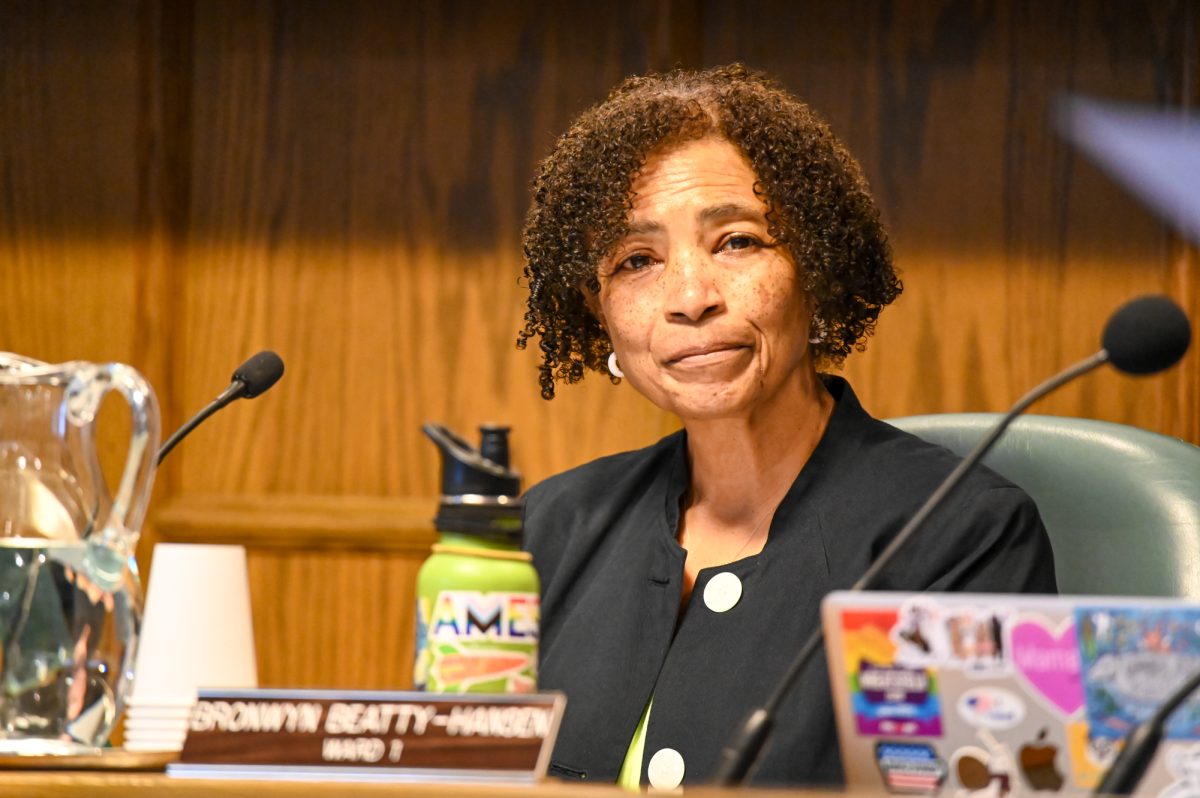LETTER: Homosexual factors complex, varied
March 4, 2003
While I’m not qualified to sound off on the scientific details of a “nature vs. nurture” debate, I’d like to address the logic of some particular arguments made by Nancy Suby-Bohn in her letter to the editor on March 4 regarding the causes of homosexuality, titled “Evidence for ‘gay gene’ theory lacking.”
Ms. Suby-Bohn states that she “can’t support homosexuality because [she] can’t support the path of pain they had to go through for them to develop their homosexual lifestyle.” For the sake of argument, let’s grant for the moment that a particular set of environmental factors does lead to homosexuality.
Even in such a case, it’s still unclear how one may reach a valid conclusion about an effect by evaluating the morality of its cause. Her own example of environmental effects on height make this clear; it is not “immoral” to be short merely because your DNA didn’t call for it.
Additionally, this situation isn’t a causal dialectic; the effect does not, in turn, perpetuate the original cause. Attempting to convert gay people to heterosexuality “after the fact” would do nothing to address the problem of the abusive families which supposedly cause their children to turn gay. The real moral issue is the abusive family itself, regardless of any effect it may have on sexuality.
Furthermore, I dispute the existence of a said relationship between environment and sexuality, not least of all because a single counterexample undercuts a general theory. Ms. Suby-Bohn claims that one is led onto the “homosexual path” by a route “as simple as not being accepted by same-sex peers,” or by growing up in an abusive or insufficiently nurturing home. Simply by personal experience, I dispute that this must be the case.
I certainly dealt with issues of social acceptance as a child, though not more so than anyone else who’s been through that quagmire of popularity contests and shifting identity we as a society choose to call “elementary school.”
My sister and I grew up in a very supportive, “traditional” home; every day, Dad went off to make money, while Mom attended to the roughly ten million sub-occupations found in the homemaker’s job description. Differences, both of opinion and of personality, were always respected, and the lines of communication were always open.
However, I’m gay, while my sister is straight. Additionally, many of my straight friends came from homes just as broken as mine was supportive, and it seems silly to wonder whether their unfortunate surroundings might have “turned them straight.”
While this anecdotal observation may not be sufficient to discount environmental factors entirely, it should point out the fallacy of inferring that “A causes B” simply because both elements have, in some cases, been observed in close proximity to one another.
Reilly Liebhard
Senior
Political Science






